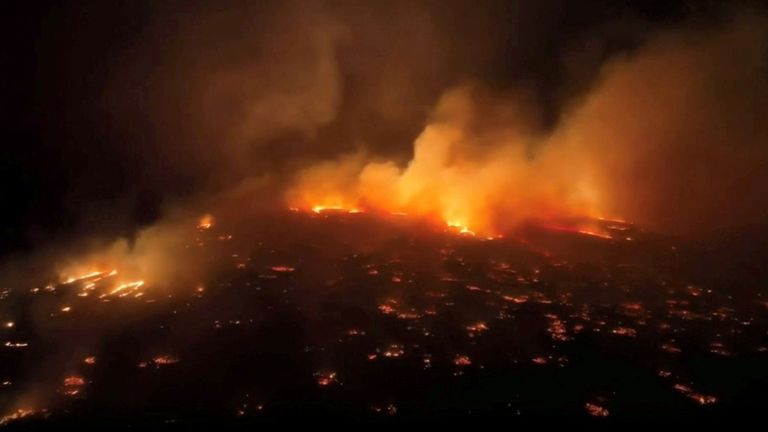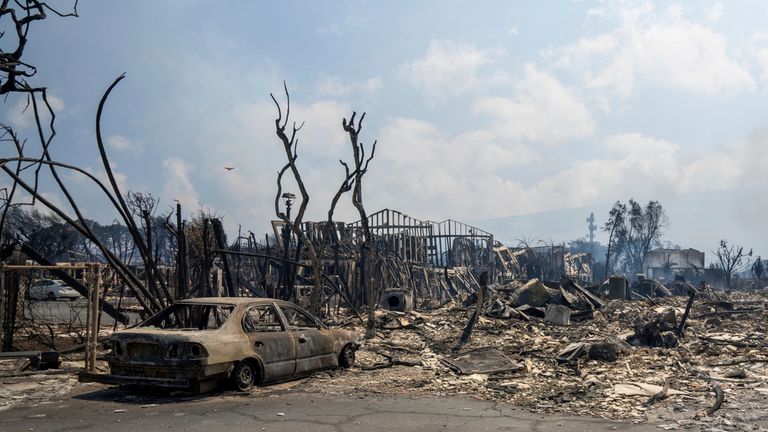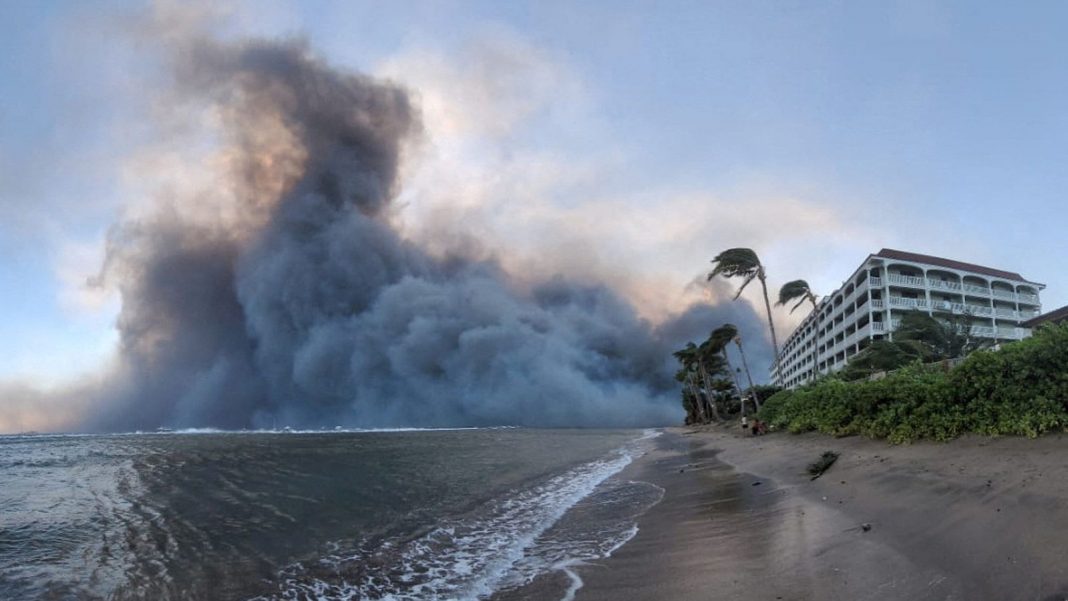Catastrophic wildfires in Hawaii were sparked by a “worst case scenario” and are part of a global increase in extreme fires, experts say.
The disastrous flames on the island of Maui have claimed the lives of more than 50 people and destroyed swathes of highly flammable landscape.
It’s being called the “largest natural disaster” in the US state’s history and questions are understandably being asked about why these fires are as bad as they are – and why the death toll is so high.
Read more: Flames overtook town ‘without warning’ – Hawaii fires latest updates
Sky News spoke to two experts on wildfires regarding the factors contributing to the tinderbox conditions that ignited in Hawaii and what this disaster means for life on Earth in future.
‘Highly flammable landscape’
The forecasted fire risk in Hawaii before the wildfires broke out was “very, very high”, professor Stefan Doerr, director of the Centre for Wildfire Research at Swansea University tells Sky News.
A lot of the landscape is now covered in “highly flammable grass species” as people have moved away from farming.
This is part of a trend in changing land use that has taken place over decades, he said.
“That has contributed to a more flammable landscape,” he adds, comparing it to the savanna environment in Africa where wildfires are common.
Please use Chrome browser for a more accessible video player
1:20
Whole neighbourhoods were destroyed by the fires that swept through Lahaina.
‘Worst case scenario’
Both experts pointed to a combination of factors being involved in the Hawaii wildfires, rather than one overarching cause.
Read more:
Locals tell terrifying tales of survival
Hawaii wildfires in pictures
Mr Doerr outlined some of the factors, including strong winds, extended hot and dry weather, ignitions of fires in multiple areas, the wide “front of attack” as wildfires sweep through vegetation, and the fact that so many buildings are constructed from flammable materials, like wood.
“It’s a pretty worst case scenario all coming together,” he said.

An aerial view of a wildfire in Kihei, Hawaii
Will climate change mean more fires?
Climate change is “central” to promoting the conditions under which fires can spread, Mr Doerr says.
“A less ferocious fire would have been more likely if we hadn’t had climate change.”
Dr Thomas Smith, associate professor in environmental geography at the London School of Economics, said it is difficult to say how much of a role global warming played in the Hawaii disaster.
He said fires are a “complex hazard” and climate is one of several factors involved in their spread.
With the Hawaii fires coming so soon after the scary scenes on the Greek island of Rhodes last month, are we living in an era where these events are going to happen more often?
“At the moment climate change is baked in and we need to live with a more flammable environment”, Dr Smith said.
“We should be doing something about climate change but it’s going to be decades until we see any slowdown in warming if we can achieve the Paris (climate agreement) targets.”

Very hot weather combined with factors including a highly flammable landscape resulted in disaster. Pic: AP
He argued for greater education about the risks of ignition, as well as consideration for how best to manage flammable vegetation.
Prof Doerr added: “All the climate models agree, there’s no disagreement whatsoever, that the number of extreme fire days we have around the world will increase further.
“We’ve already had an increase of about 27% over the last 30 years or so… and this trajectory is going up very steeply, so we have to do something.”







